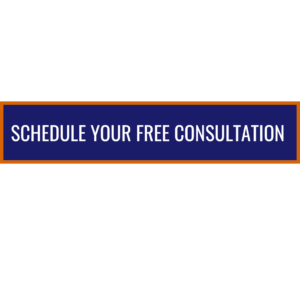
What to Do When the At-Fault Party’s Insurance Denies Your Claim
Experiencing the frustration of having your insurance claim denied by the at-fault party’s insurance company can be disheartening. However, it does not necessarily mean the end of your pursuit for compensation. In such situations, there are steps you can take to challenge the denial and seek the financial recovery you deserve. In this blog post, we will discuss what to do when the at-fault party’s insurance denies your claim.
-
Review the Denial Letter
Carefully review the denial letter provided by the insurance company. It should outline the reasons for the denial and refer to specific policy provisions or exclusions. Understanding the basis for the denial will help you assess the viability of challenging it and identify the necessary steps moving forward.
-
Gather Supporting Evidence
Collect all relevant documentation and evidence to support your claim. This may include accident reports, photographs, witness statements, medical records, and any other evidence that demonstrates the at-fault party’s liability and the extent of your damages. Strong evidence can bolster your case and help dispute the insurance company’s decision.
-
Consult with an Attorney
Consider seeking legal representation from a personal injury attorney experienced in handling insurance claim denials. An attorney can review your case, assess the denial letter, and provide valuable guidance on your options. They can navigate the legal complexities, negotiate on your behalf, and take legal action if necessary to pursue fair compensation.
-
Communicate with the Insurance Company
Engage in open and ongoing communication with the at-fault party’s insurance company. Request a written explanation of the denial, ask for clarification on any ambiguous points, and provide additional supporting evidence that may address the insurer’s concerns. Keep records of all correspondence and follow-up conversations.
-
Initiate the Appeals Process
Most insurance companies have an appeals process for claim denials. Follow the specific instructions outlined in the denial letter to initiate the appeals process. Submit a formal appeal letter along with any additional evidence supporting your claim. Be thorough and articulate in presenting your case, addressing each reason for denial individually.
-
Escalate the Dispute
If the appeals process does not lead to a favorable resolution, you may need to escalate the dispute. Consult with your attorney to explore options such as mediation, arbitration, or litigation. Depending on the specifics of your case and the extent of your damages, taking legal action may be necessary to pursue fair compensation.
-
Consider Your Own Insurance Coverage
Review your own insurance policy to determine if you have any applicable coverage that can help address your damages. For example, if you have uninsured or underinsured motorist coverage, it may provide compensation when the at-fault party’s insurance denies your claim. Consult with your insurance company and your attorney to understand the coverage and its potential impact on your case.
-
Document Costs and Damages
Keep detailed records of all expenses related to the accident and your injuries. This includes medical bills, prescription receipts, repair estimates, and any other financial losses you have incurred. Proper documentation of your costs and damages will strengthen your case and support your claim for compensation.
Having your claim denied by the at-fault party’s insurance company can be discouraging, but it does not mean the end of your pursuit for compensation. By carefully reviewing the denial letter, gathering supporting evidence, consulting with an attorney, engaging in communication with the insurer, initiating the appeals process, and considering your own insurance coverage, you can challenge the denial and seek the compensation you deserve. With persistence and proper legal guidance, you can increase the likelihood of a favorable resolution to your claim.
A personal injury lawyer can help you understand your legal options and negotiate a fair settlement on your behalf. Click here to schedule a free consultation with one of our skilled California lawyers to learn more about your options. Or call our offices at 707 549 8166.

